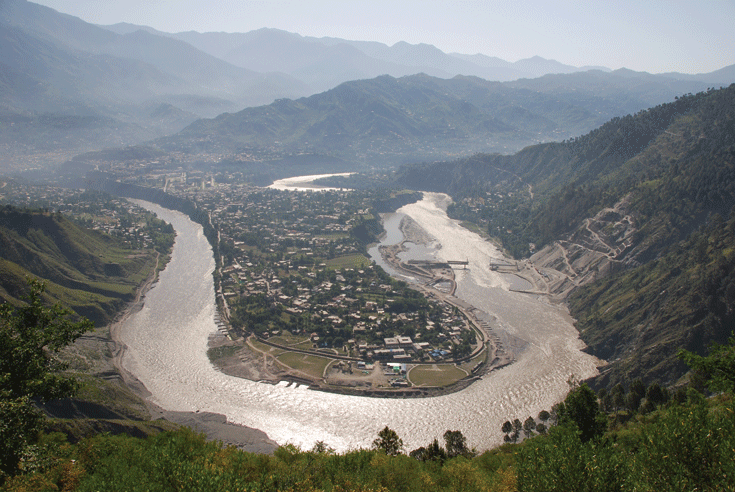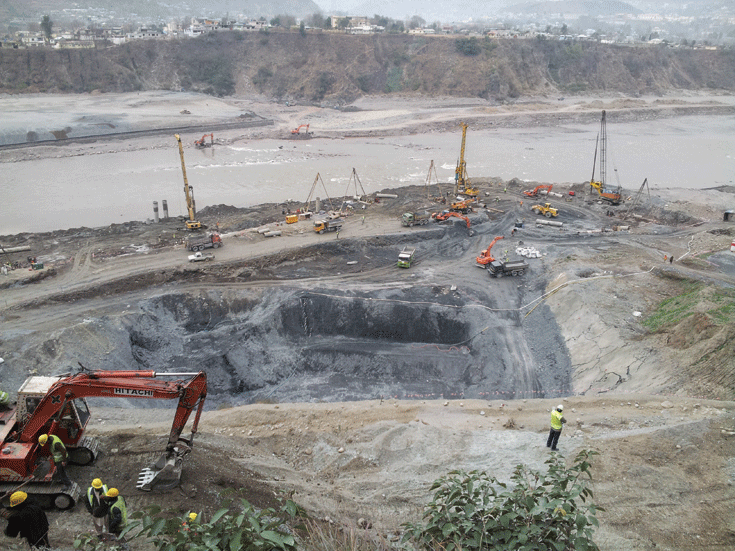Interview with newly appointed President Choi Gye-woon of K-Water
All the management and staff members of the state-run Korea Water Resources Corp. were shunned by the people last year as the country’s major rivers turned murky green in summer and the company was named as one of most heavily-indebted government-owned corporations months later.

That is why many experts have raised the bar of expectations from the nation’s top water control tower--better known as K-water--for this year in the wake of the government’s appointment of Choi Gye-woon, a renowned water environment expert, as new chief executive to head the agency.
Since his appointment in October last year, Mr. Choi has hosted or attended a series of policy-making meetings and forums aimed at bolstering K-water’s performance to restore its financial health and public trust.
One of the notable gatherings Mr. Choi presided over was the company’s New Year meeting held on Jan. 2 when K-water announced its new management drive toward the implementation of the so-called “smart water grid system” and an all-out overhaul of the organization.
Declaring a catch phrase of “Smart New Management” at the business kick-off meeting, the entire K-water staff vowed to adopt a fresh “paradigm” in their water treatment services. The new paradigm represents K-water’s willingness to supply water making its customers healthier, adding to its ongoing efforts to supply clean water, according to the company.
K-water also said it is set to mobilize all possible information and communications technologies required to realize the smart water grid system. The smart water grid is a new way to describe the relationship between technology, resources management, and sustainable water infrastructure.

The K-water smart system, if materialized, will not only allow the agency an advanced monitoring and management mechanism in the process of water supply but also enable respective users to directly check on the quality of the supplied water.
Choi, who obtained a Ph.D. from Colorado State University in civil engineering and served as a vice chairman of the privileged Korea Water Resources Association, has carried out a number of water resources-related studies and projects, including the state-funded “smart water grid project”.
Therefore, Mr. Choi is widely regarded as the apt person to win through the state body’s imminent tasks: First regaining financial health of the debt-ridden organization; second winning back public confidence; thirdly setting up a safety net to embrace for expected algae blooms in the country’s major rivers ahead of the upcoming summer.
In November last year, the government said it would keep a watchful eye on 12 debt-ridden public firms. Operating profits of nine of them were lower than their interest payment last year. K-water, unfortunately, was on the list of the 12 firms. Since then the government has looked into the firms’ debt structures, putting the blame on faults of the past administration, lax management and expansion of impractical projects. The government warns that it will disclose those who hold liability for any damage to the nation.
The combined debt held by the 12 major public firms, including land and housing developer LH Corp., power supplier KEPCO and K-water as well, surged from 187 trillion won to 412 trillion won (US$387 billion) under the previous administration of President Lee Myung-bak. The amount is compared to South Korea’s national budget set at 355.8 trillion won (US$335 billion) for this year.
The debts are said to have resulted largely from what are said to be the state firms’ reckless issuance of bonds and bank borrowings to finance large-scale construction and engineering projects, including the mammoth four-river refurbishment work.
K-water, which oversaw the four-river project, asserted that it was a scapegoat of the expensive government scheme. But it could not avoid harsh public criticism over irregularities committed by some of its employees and subcontractors in the process of handling the project.
In response to the government overhaul plan, top K-water executives have returned their annual pay award for 2013, bearing their salaries frozen and various fringe benefits reduced for this year. Cutting the company’s debt ratio to below 100 percent from the current 123 percent was another emergency measure, among others.
It also plans to expand tap water supply facilities for rural areas and backwoods as well, and develop new tap water resources, in a bid to promote balanced water supply services across the country.
In what has become an annual summer scourge in the country, some major rivers were fouled with bright green beds of algae, prompting millions of dead fish to be washed ashore for weeks amid scorching heat and protracted draught in August last year. The real problem lied in a sudden increase in microscopic algae in a given body of water, for which the four-river restoration project was to blame by many environmentalists. The increase in algae adversely affects the marine life around it and eventually takes huge tolls on the fishing industry. Environmentalists claim that the weirs and mini-dams, which were built as part of the controversial river project, slowed water flows, creating conditions for the faster-than- expected proliferation of the green muck.

K-water appears to be poised to take actions against the disastrous phenomenon. It hosted a seminar in Seoul last December, with the attendance of water treatment experts, environmental scientists, government officials as well as K-water executives. During the forum, they exchanged views on how to cope with the forthcoming green algae season and suggested that the government should not only invest more in the research and development sector but also do its utmost to train top-level experts to handle the matter. Fostering collaboration between the government, private businesses and key technologists was also recommended.
The participants also demanded that K-water beef up vigilance on safety in water treatment and that the agency seek ways to connect dammed pools built for irrigation and large-scale reservoirs to secure better water resources and prevent the rivers from being covered with a coat of green algae.
“We do not have time to waste any longer, simply continuing debates on the four-river project,” K-water’s Choi told reporters this month. “Our grave task, regarding this matter, is how to resolve the green algae problem.”
Choi added that by the middle of this year, a new water supply management system which enables respective households to personally check on the process of water supply and the water quality will be introduced for the first time into the country.
Given a recent comment by Deputy Prime Minister and Finance Minister Hyun Oh-seok that “we’ve said the (public firms’) party is over,” K-water now has to hit two birds with one stone, purifying water resources and its working arena as well. In this regard, the Korean people, who have been warned that they could face the danger of water scarcity by the middle of this century, might know that the 47-year-old state water controller cannot afford to balk at its reform - or evolution, in order to supply pure and clean water, not with the new system but with its entire staff members’ heart.

